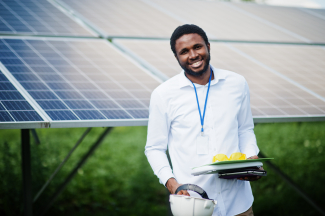FILTER
Displaying 81 - 90 of 437 publications
Abstract Until recently, the price of electricity in Ethiopia was among the lowest in the world. Such low prices have contributed to a substantial financial deficit for the government-owned electric…
| Peer Reviewed | EthiopiaMany macroeconomic variables undergo business cycle episodes (fluctuations), which makes the variables change dramatically. Hence, the causality between these variables could be hidden by the presence…
| Peer Reviewed | GhanaAbstract In low-income countries such as Ethiopia, pre-paid metering is often argued to alleviate several challenges with traditional electricity billing systems, including high non-payment rate…
| Peer Reviewed | Ethiopia
What would motivate people to pay more for electricity generated by renewable energy sources?
| Peer Reviewed | Vietnam
Cooking, an important household activity is often done using heavy polluting fuels by a majority of households in sub-Sahara Africa (SSA). In this study, we examine how the choice of cooking fuel...
| Peer Reviewed | GhanaHighlighting domestic benefits and enhancing international support are the boost developing countries need to reduce their emissions
| Policy Brief | VietnamIn this paper, we provide direct evidence for an increasingly critical role of China in the world oil markets. Specifically, our empirical results confirm that the influence of China's oil demand on…
| Peer Reviewed | VietnamAligning development and climate goals means Africa’s energy systems will be based on clean energy technologies in the long term, but pathways to get there are uncertain and variable across countries…
| Peer Reviewed |Abstract We estimate the key private benefits of a program to improve ambient air quality during winter in central Chile by replacing inefficient wood-fired home heating stoves with more efficient…
| EfD Discussion Paper | ChileInteractions among peers of the same social network play significant roles in facilitating the adoption and diffusion of modern technologies in poor communities. We conduct a large-scale randomized…
| Peer Reviewed | Global Hub
